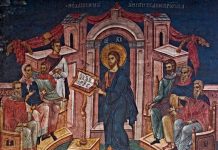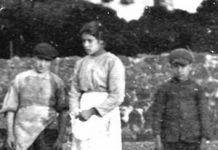This Saturday, November 4th, is the feast of St Charles Borromeo, one of the shining lights of the Catholic Reformation, a time of turmoil. Charles Borromeo, united with St Ignatius of Loyola as well as St Philip Neri, did his very utmost so that the true reform could reach every aspect of Catholic life. Borromeo was also responsible for the foundation of seminaries which would educate appropriately candidates for the priesthood. His bravery made him a leading protagonist in the proceedings of the Council of Trent. Cardinal Borromeo gave a decisive helping hand in the creation of the first universal catechism of the Catholic Church. As a man of God he knew that he would only put out into the deep in pastoral life if he committed himself seriously to prayer as well as letting the Lord embellish him with a charitable heart. Furthermore, St Charles Borromeo felt himself genuinely responsible to live what he preached from the pulpit.
It is interesting to see what some Popes had to say on this patron saint of catechists and bishops alike. In his address to the Sacred College of Cardinals on the Feast of St Charles Borromeo of Saturday, 4 November 1978, St Pope John Paul II, whose patron saint was Charles Borromeo – being named after him – said:
St Charles! How often I have knelt before his relics in Milan Cathedral; how often I have thought about his life, contemplating in my mind the gigantic figure of this man of God and servant of the Church, Charles Borromeo, Cardinal, Bishop of Milan, and a man of the Council. He is one of the great protagonists of the deep reform of the 16th century church, carried out by the Council of Trent, which will always remain linked with his name. He is also one of the creators of the institution of ecclesiastical seminaries, which has been reconfirmed in all its substance by the Second Vatican Council. Moreover, he was a servant of souls, who never let himself be intimidated; a servant of the suffering, of the sick, of those condemned to death.
In his message to Cardinal Dionigi Tettamanzi, Archbishop of Milan, on the occasion of the 400th anniversary of the canonization of St Charles Borromeo, issued on November 1, 2010, Pope Benedict XVI defined Charles Borromeo as lumen caritatis, the light of charity. At the beginning of his message, the German Pope wrote: The light of charity of St Charles Borromeo has illumined the whole Church and, by renewing the miracles of the love of Christ, our Supreme and Eternal Pastor, has brought new life and new youthfulness to God’s flock, which was going through sorrowful and difficult times.
Further down in his message, Pope Benedict defined him as the father of the poor. He was able to be so because he let himself be accompanied by the art of prayer, mortification and charity. Hence, the Holy Father wrote: St Charles, moreover, was recognized as a true and loving father of the poor. Love impelled him to empty his home and to give away his possessions in order to provide for the needy, to support the hungry, to clothe and relieve the sick. He set up institutions that aimed to provide social assistance and to rescue people in need; but his charity for the poor and the suffering shone out in an extraordinary way during the plague of 1576 when the holy Archbishop chose to stay in the midst of his people to encourage them, serve them and defend them with the weapons of prayer, penance and love (no.2).
In Pope Francis’ words while addressing the community of the Pontifical Lombard Seminary in Rome on January 25, 2016, the Holy Father had this to say about St Charles Borromeo: He wanted pastors who would be servants of God and fathers to their people, especially the poor.
The following five quotes in themselves unravel to us the great holiness that was at work within this great bishop who loved and spent himself for Christ in his Church. To begin with, St Charles staunchly advocated the holy custom of being in God’s presence. He said: If we wish to make any progress in the service of God we must begin every day of our life with new eagerness. We must keep ourselves in the presence of God as much as possible and have no other view or end in all our actions but the divine honor.
Secondly, St Charles encouraged us to be discerning in everything we do, say and think. He said: We must meditate before, during and after everything we do. The prophet says: “I will pray, and then I will understand.” This is the way we can easily overcome the countless difficulties we have to face day after day, which, after all, are part of our work. In meditation we find the strength to bring Christ to birth in ourselves and in others.
Thirdly, St Charles teaches us to cultivate spiritual life. He wisely counselled: If a tiny spark of God’s love already burns within you, do not expose it to the wind, for it may get blown out. Keep the stove tightly shut so that it will not lose its heat and grow cold. In other words, avoid distractions as well as you can.
Fourthly, much on the same lines of Christ, he challenges us to live what we preach. Thus he stated: Be sure that you first preach by the way you live. If you do not, people will notice that you say one thing, but live otherwise, and your words will bring only cynical laughter and a derisive shake of the head.
Finally, St Charles advises us to avoid what Pope Francis calls the terrorism of gossip. He said: Stay quiet with God. Do not spend your time in useless chatter.
Preserve in the midst of your people, we ask, O Lord, the spirit with which you filled the Bishop Saint Charles Borromeo, that your Church may be constantly renewed and, by conforming herself to the likeness of Christ, may show his face to the world. Who lives and reigns with you in the unity of the Holy Spirit, God, for ever and ever. Amen.









